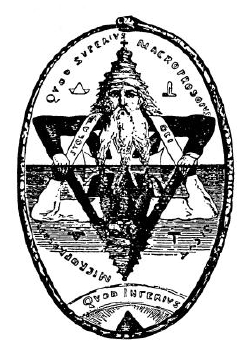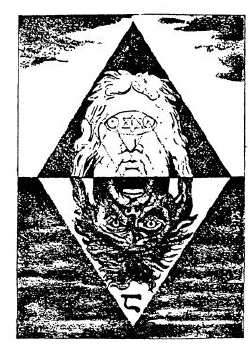 June 07
June 07
Zionism and Gnosticism
by Dr. Yotam Hotam
p. 2 of 2
According to Blumenberg, it was the “Gnostic challenge” – meaning the discovery of the rift between human being and the world (or figuratively the rift between existence and the universe) – that was cracked open with the scientific discoveries of the sixteenth century, and which drove human consciousness to respond. This response was based on the secularization of Christian theology; that is, placing responsibility for the world on mankind’s shoulders, the same responsibility that Christianity had previously attributed to God. For Blumenberg, responsibility for the world is the very rock of modern consciousness, while technology, science, mastery of nature, and modern political order are its complex outcomes. With this, Blumenberg aims to re-legitimize the modern world which was put in doubt after Auschwitz. And in the end, Blumenberg offers a more complex equation than Loewith: secularization, as the outcome of Christianity multiplied by time, is the function of Gnostic apostasy. Thus Loewith and Blumenberg summarized the competing theories that populated the German intellectual landscape in the twentieth century regarding the question of secularization’s origin.
 The Quivering of the Religious Soul
The Quivering of the Religious Soul
Now we return to discussing Zionism as a political-theology – that is, as a conception whose basis is religious while its expression is political. The question remains, how can modern German thought and its investigation of secularization and its theological origins bear upon our understanding of Zionism? As noted earlier, Zionism was a modern-secular movement, and in this way it translated the sacred into the earthly medium. Zionism in this form remains, in Gershom Sholem’s vocabulary, a “dialectic of continuity and change” in relation to religious tradition. This point is rather obvious, as countless Zionist expressions incorporate such a dialectical duality – purchase of land as an act of “redemption of the land;” “the burning of old values” as the awakening of “a man of creation” according to Tabenkin or Berdichevski; the people of Israel’s responsibility to “remember” is found in Katznelson’s famous national poem, both carrying a Jewish religious origin, and simultaneously protesting it; and the secularization of the sacred tongue Hebrew (“Leshon HaKodesh”) to a vernacular. Yet given the dispute over secularization’s source, what is the source of Jewish secularization?
Zionism incorporates a radically dualistic vocabulary in a concrete political context. There is a radical disconnection between exile and homeland, the Diaspora Jew and the New Jew, assimilation and national independence. In this approach, the rebellion against the world conditions as such (the Diaspora existence) is absolute: it is a rebellion against all aspects of this reality in order to create a New Jew who bears a direct connection to his or her true Jewish identity otherwise lost during the years of exile. Bluntly put, the return to the land was conceived as an act of liquidation of the Diaspora; national independence as the realization of true Jewish-ness which stood in opposition to historical reality. Zionism claims to recover a hidden and lost true Jewish essence, one which stands over and against historical reality.
In this way, one can find in Zionism the same theological profile that was termed “Gnosis.” Dualism, the hidden essence, total estrangement from the world – these work together to form the very pillars of Gnosis as we saw in Blumenberg’s retrospective as based on Hans Jonas. However, in Zionism these terms are given a secular expression. For instance, the “hidden” divinity becomes the hidden essence within man, meaning the “original” Jewish nature that had been lost during years of exile and which according to Zionism needs to be renewed. In the same way, the dualism between God and the world becomes the dualism between two different kinds of historical reality – the reality of the Diaspora in opposition to a national one that must be built up from nothing. Finally, the Jew of Zionism recovers his true Jewish identity on the basis of his bonds with the land and the rejection of the yoke of halakha, perhaps the clearest appropriation of Gnosticism in an everyday context. From this point of view, even religious youth who race to the summits of hilltops (known as Children of the Hilltops or "Noar Hagvaot" in Hebrew) with messianic-political defiance in their hearts seem to represent a purer expression of this secular-modern value – the “secularization” of “Gnosis” – rather than being emissaries of a demonstration rooted in a halakhic imperative.
 Is the appropriate conclusion that the source of Jewish secularization is external to Judaism as Blumenberg claimed regarding the external sources of modernity in general? Juxtaposed with this question rests the conclusion of Gershom Scholem, who concerned himself with mysticism and Jewish apostasy, and defined himself as a Zionist from the time of his youth in Berlin. According to Scholem, there is Jewish Gnosis, or to be more precise, Gnosis whose origin is in Judaism. Scholem made this claim in opposition to the assertions of his friend and colleague, Hans Jonas, who maintained that Gnosis had ancient and pagan origins as well as in opposition to Adolph von Harnack who saw in Gnosis the true Christianity. Scholem’s stance is most evident in his claim that the Sabbatean outbreak in the 17th century was “a new form of Gnostic dualism between a hidden God and a creator God.” In this way, Sabbatean apostasy was the continued expression of Jewish mystical tradition, which acts as a rebellion against and renunciation of halakhic life of internal Jewish origin.
Is the appropriate conclusion that the source of Jewish secularization is external to Judaism as Blumenberg claimed regarding the external sources of modernity in general? Juxtaposed with this question rests the conclusion of Gershom Scholem, who concerned himself with mysticism and Jewish apostasy, and defined himself as a Zionist from the time of his youth in Berlin. According to Scholem, there is Jewish Gnosis, or to be more precise, Gnosis whose origin is in Judaism. Scholem made this claim in opposition to the assertions of his friend and colleague, Hans Jonas, who maintained that Gnosis had ancient and pagan origins as well as in opposition to Adolph von Harnack who saw in Gnosis the true Christianity. Scholem’s stance is most evident in his claim that the Sabbatean outbreak in the 17th century was “a new form of Gnostic dualism between a hidden God and a creator God.” In this way, Sabbatean apostasy was the continued expression of Jewish mystical tradition, which acts as a rebellion against and renunciation of halakhic life of internal Jewish origin.
The ramifications of such a stance in relation to Zionism are the following: just as the sources of Zionism, a modern secular movement, can be found in religious apostasy, it can also be said that such apostasy derives from an internal Jewish source. This is the twisting pirouette that we can attribute to Scholem, who responds to the political-theological debate of his time with what he called a “suitable Zionist answer.”
Examining Zionism in political-theological terms entails uncovering the theological origins that support a nationalist world-view. And note: this process brings back to the center of the academic arena twentieth century German intellectual heritage of all things – much of which had been largely disregarded in the last few decades – since it was the system that obsessively analyzed the political-theological issue that has returned to being so relevant today. The question of the theological sources of secularization in general and Jewish secularization in particular remains in dispute. Regardless of whether or not there is agreement regarding the theological sources of Jewish nationalism, reading into the political-theological aspect of Zionism results in the observation that at its core, Jewish nationalism radiates, in the words of Brenner, the “quivering of a religious soul.” This is nuclear fuel that never runs out. With the backdrop of the current awakening of religion and theology, it seams reasonable to argue that this burning core will continuously sustain the relevance of Zionism in our day, for the secular and religious alike.
Dr. Yotam Hotam is a visiting lecturer in the Department of History at the Hebrew University of Jerusalem and a fellow of the R. Koebner Minerva Center for Germany History and of the Franz Rozenzweig Research Centre for German-Jewish Literature and Cultural History. His book Modern Gnosis and Zionism: The Crisis of Cultural, Life Philosophy, and National Jewish Thought (Hebrew) was recently published by Magnes Press.








